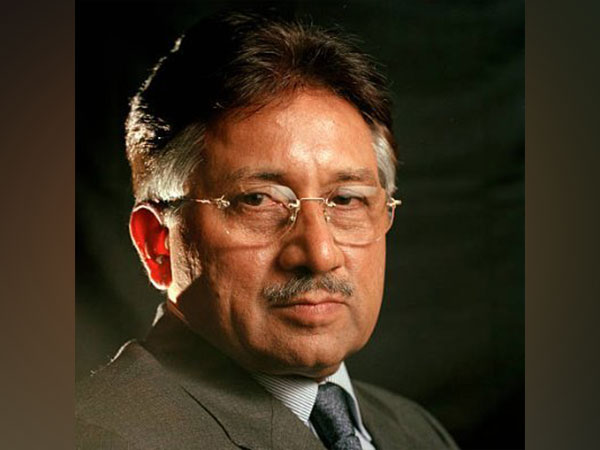Pervez Musharraf leaves behind a disputed legacy: Strategic affairs experts

- Country:
- India
Pervez Musharraf, the former military dictator of Pakistan, was the architect of the 1999 Kargil war, but later realised that he needed to have good relations with India for his country's stability, strategic affairs experts said on Sunday.
The Delhi-born General, who seized power in 1999 in a coup and served as Pakistani president from 2001-2008, died in Dubai after a long illness.
Former Indian high commissioners to Pakistan G Parthasarathy and TCA Raghavan described Musharraf's legacy as ''disputed'' and said he realised after the disastrous Kargil conflict that nothing would change in Pakistan if it does not have good relations with India.
Raghavan said a phase of better relations between India and Pakistan began in 2004 with Prime Minister Atal Bihari Vajpayee at the helm and it continued under Prime Minister Manmohan Singh's tenure until the terror attack in Mumbai in November 2008.
Asked about former Pakistan foreign minister Khurshid Mahmud Kasuri's claim in his book 'Neither A Hawk Nor A Dove' that India and Pakistan were close to finding a solution to the vexed Kashmir problem during the 2001 Agra Summit between Vajpayee and Musharraf, Raghavan said there was some truth in it.
''His tenure saw both the highs and lows in India-Pakistan relations,'' he told PTI.
''Musharraf was the architect of the Kargil war, but thereafter he also realised that he needed to have good relations with India and made good progress in this regard, particularly with the softening of the LOC (Line of Control) and the beginnings of the cross-LoC movement of people and trade. So it's a twin kind of a legacy,'' he said.
In July 2001, Musharraf paid a high-profile visit to India and held summit talks with then prime minister Vajpayee in Agra with an aim to improve the frosty ties between the two nuclear-powered neighbours.
''After he became president, I think, he realised that for stability in Pakistan, it needed to have a better relationship with India. Kargil, he planned it when he was the Chief of Army Staff. But thereafter, he realised that unless he has more stability in relations with India, nothing would change in Pakistan itself,'' Raghavan said.
''I think his is going to be a disputed legacy,'' he said.
Ambassador Parthasarathy too agreed with Raghavan's analysis of Musharraf's legacy.
''I personally knew Musharraf when I was the high commissioner. He was the man behind the Kargil conflict and he really believed that he would succeed in taking control of the entire mountainous areas in Kargil and affect our lines of communication.
''The Indian Army responded to it in a very strong manner which resulted in a disaster for him,'' he recalled.
''Musharraf got a bad name at home because of the botched-up operation which was really his doing. There was some doubt about whether the then prime minister Nawaz Sharif was fully aware of what was happening,'' Parthasarathy told PTI.
The former Indian envoy to Pakistan suggested that the pressure felt by Musharraf led to the coup.
Musharraf seized power in the coup in October 1999, ousting the then prime minister Sharif, that had also triggered some concerns in India.
''And interestingly, he (after seizing power) found that hostility towards India is not working. We did have long discussions with him on Jammu and Kashmir on the back channel which showed some progress,'' Parthasarathy said.
Former Deputy Chief of Army Staff Lt Gen Subrata Saha, referring to the Kargil war, said Musharraf ''walked on thin ice'' and ''paid the price'' too by losing his stature within Pakistan itself.
''Quite erratic, he first disrupted the Lahore declaration by possibly surprising even PM Nawaz Sharif by waging the Kargil war. In 2001, he disappointed PM Vajpayee's overtures for peace by breaking down the Agra peace talks,'' he said.
''This was followed by the attack on India's parliament in December 2001. Later during PM Manmohan Singh's time, he made much hype about the four-point formula. There were too many sharp ups and downs in Musharraf's strategic conduct and the inconsistencies made it impossible for India to trust the person,'' he told PTI.
The Lahore Declaration was signed on February 21, 1999 following a historic summit between Vajpayee and Sharif in Lahore.
Musharraf resigned in 2008 after facing threat of impeachment.
His plan to return to power in 2013 was dashed when he was disqualified from running in an election won by Sharif, whom he had deposed in 1999.
In March 2014, Musharraf was indicted for suspending the Constitution on November 3, 2007.
In December 2019, a special court handed Musharraf a death sentence in the high treason case against him. However, a court later nullified the ruling.
The former military ruler left the country in March 2016 for Dubai to seek medical treatment.
Musharraf was born on August 11, 1943 in Delhi. His family moved from New Delhi to Karachi in 1947. He joined the Pakistan Army in 1964 and was a graduate of the Army Staff and Command College, Quetta.
Musharraf had been living in Dubai since March 2016, when Pakistan's Supreme Court lifted a travel ban on him to seek medical treatment there.
(This story has not been edited by Devdiscourse staff and is auto-generated from a syndicated feed.)
ALSO READ
Tragic Elevator Accident Claims Two Lives at Delhi Crockery Factory
The Paradox of Education in Delhi: Rising Enrolment, Stagnant Teacher Numbers
Delhi's Healthcare Expansion: New Posts to Transform Hospitals
Delhi's New Mini Secretariats: A Step Towards Decentralised Administration
Heated Exchange: AAP vs BJP Over Alleged Fake Video in Delhi Assembly










